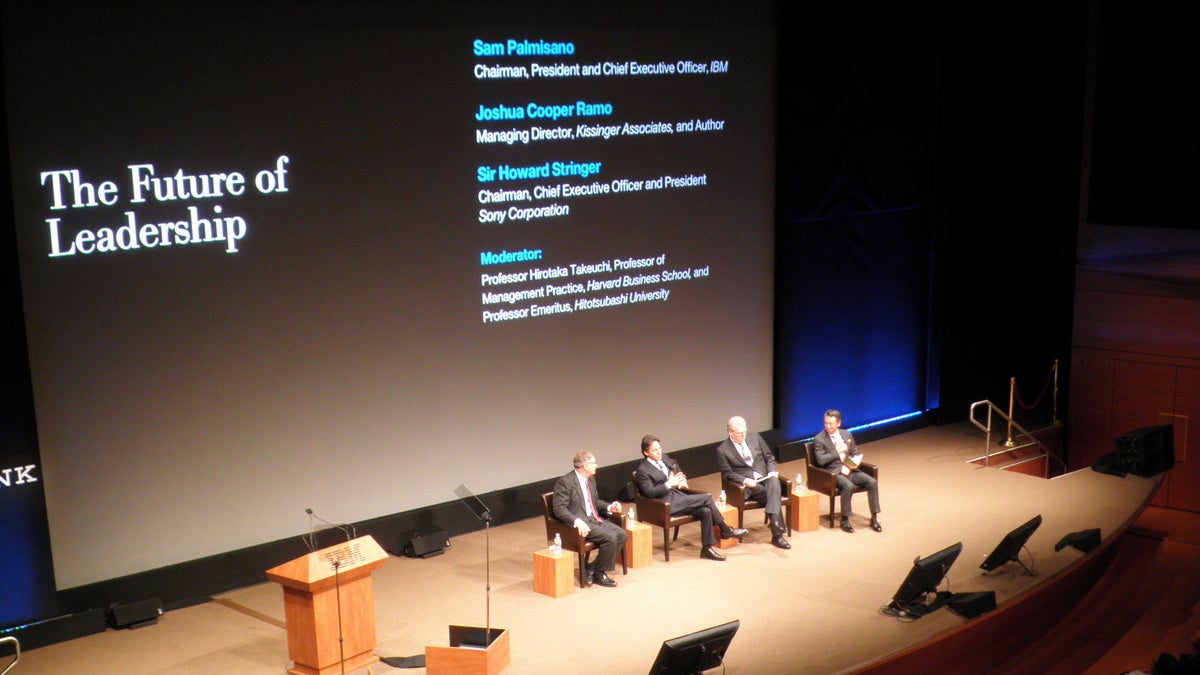Sony CEO: Companies must shed rowboat mentality
Sony CEO Howard Stringer tells attendees at a leadership conference that it's difficult for successful companies like Sony to move forward without relying too much on their past.

NEW YORK--Sony CEO Howard Stringer told attendees today at a leadership conference celebrating IBM's centennial here that change is never easy for companies that have successful pasts, including his own company.
"All great companies have a rowboat mentality," he said. "You row hard, but you're still always looking behind you to the past."
He said it's difficult for companies that have been successful in the past to resist reliving that past as they try to build businesses for the future.
Stringer admitted that Sony--which essentially invented the first portable music device, the Walkman--was slow to adopt to the Digital Age. And as a result, the company missed some key technology transitions, which hurt its bottom line and allowed rivals such as Apple to overtake it.
"We were very comfortable as an analog company making boxes," he said. "Then we had to change the company to build a digital horizontal platform."
Stringer, who was unexpectedly elevated to the CEO position six years ago, has tried to live in the present by taking some steps toward change. He has cut costs and streamlined business lines. He exited some legacy businesses, such as the Walkman, the portable cassette player that helped defined music consumption a generation ago. He has also changed the company's process from one that builds all its own products to one that outsources its manufacturing so that it can concentrate on research development and marketing.
Some of these changes have resulted in positive gains for the company. But just as the company began to see progress, the worldwide economy tanked. And Japan was hit by the earthquake and tsunami, which disrupted production at Sony plants in northern Japan and hurt supply chains.
"It is taking awhile," he said, to turn things around. "Not because of resistance to change, but because there have been recessions, earthquakes, and tsunamis that have slowed us down."
But Stringer said he is optimistic that better days are ahead, especially as the company launches new products, such as the Tablet S. This tablet is competing head to head against Apple's iPad. While some gadget reviewers have given the Sony Tablet S high marks, the product may not be differentiated enough to compete in the increasingly crowded tablet market, especially with content giant Amazon coming online with its own offering later this year.
Still, Stringer believes the company is on the right track.
"We are working hard to avoid" living in our past, he said. "And those rushing out to buy our new tablet will prove that."

